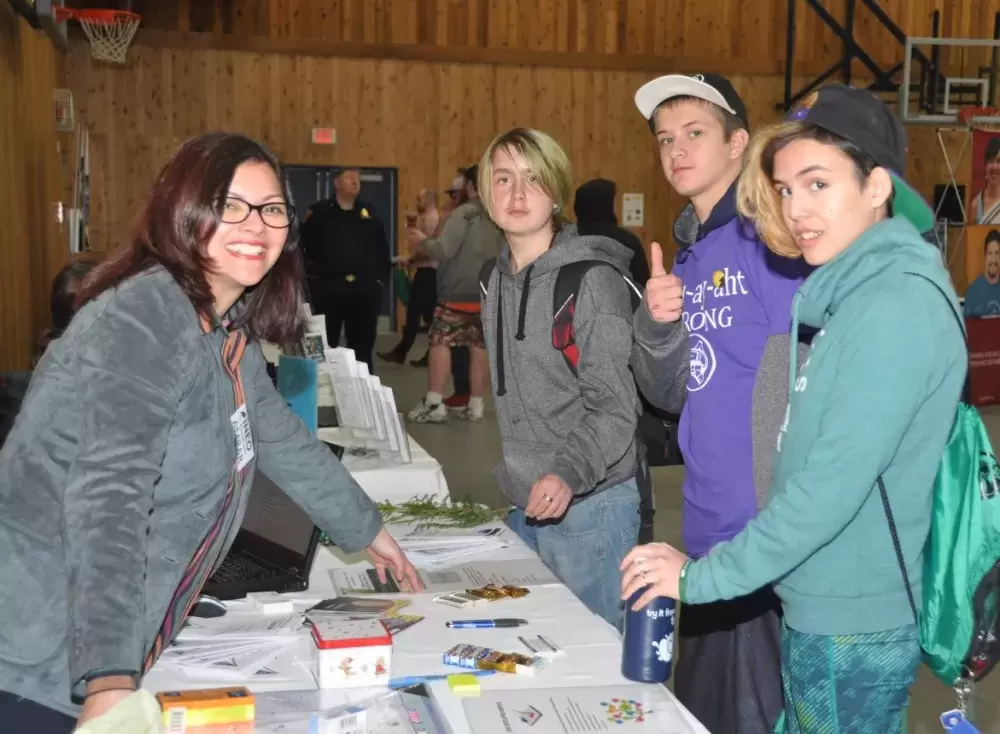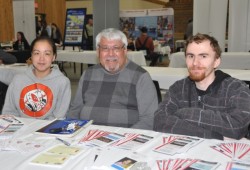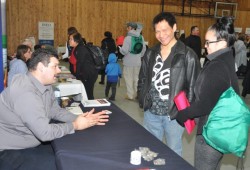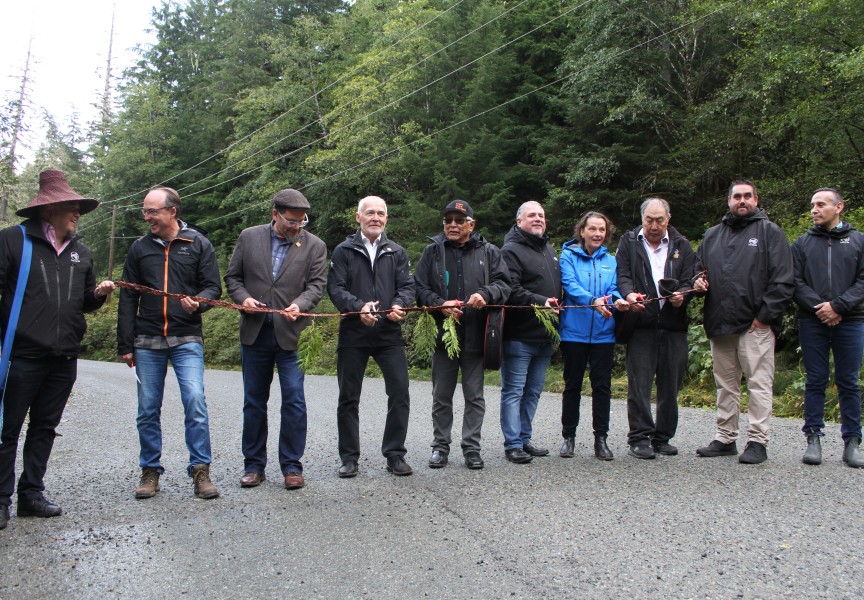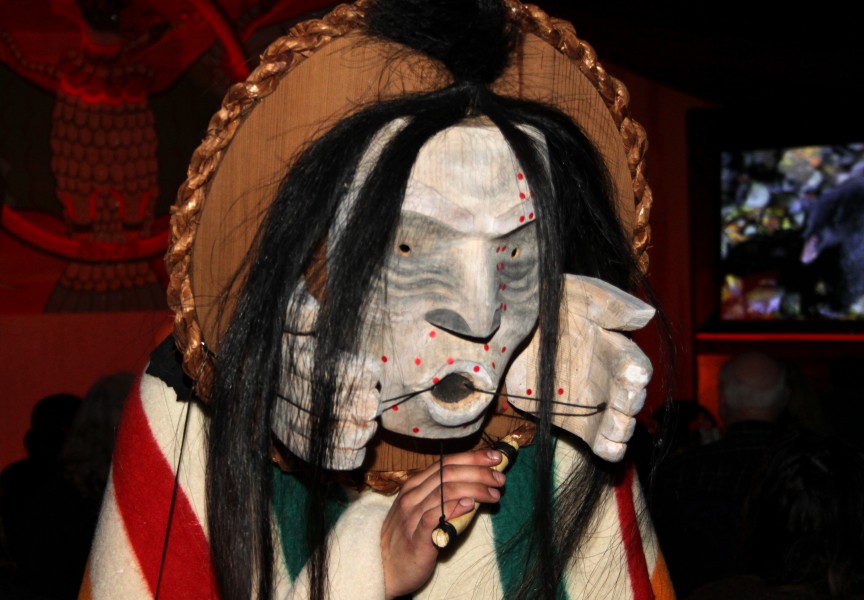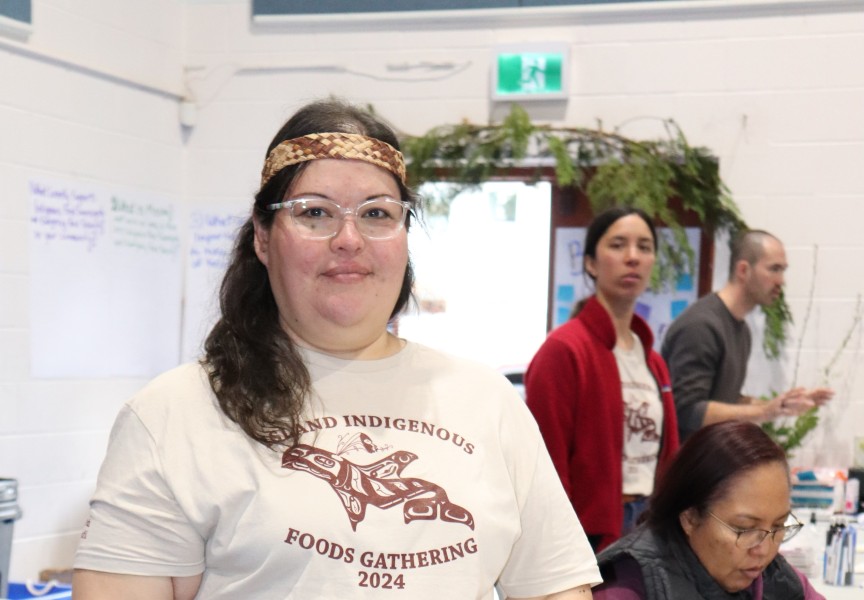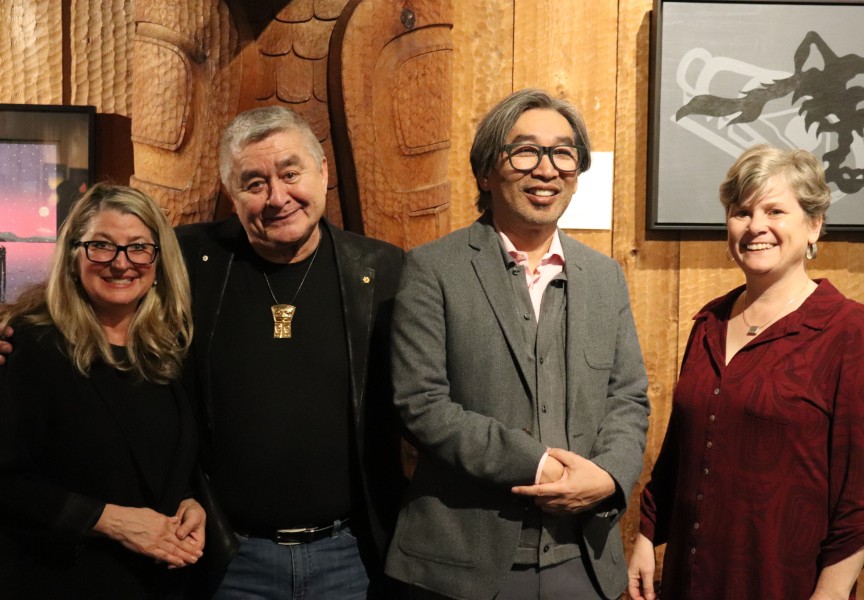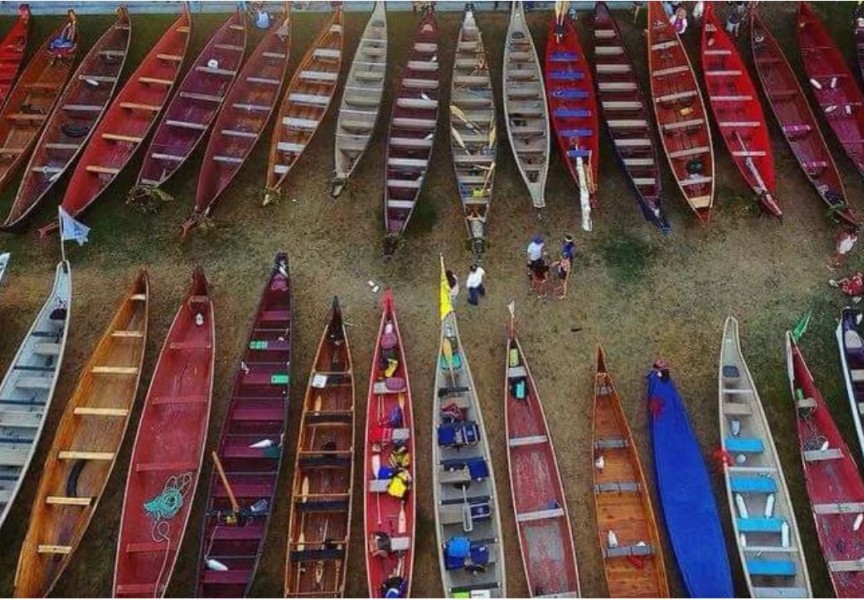The Nuu-chah-nulth Tribal Council Career Fair spread out over two days for 2018, with a series of workshops at ADSS on March 7, followed by an opportunity to check out more than 40 employers at the Alberni Athletic Hall the following day.
When Ha-Shilth-Sa dropped in at Athletic Hall on Thursday morning, a small group of students from the Eighth Avenue Learning Centre were making the rounds of the exhibits, which included both potential employers and agencies geared to provide assistance. They would be followed by groups from nearby ADSS throughout the day.
Robyn Samuel is a case manager for the Nuu-chah-nulth Employment and Training Program, which organizes the annual event.
“This is our fifth annual event,” Samuel said.
Samuel said when she started at NETP in 2009, she discovered that the NTC had organized a career fair several years earlier, and became involved in trying to create an ongoing program. Then-manager Andy Callicum decided to explore the possibilities.
“He asked what it would look like – what we envisioned. And we moved forward, and started inviting employers,” Samuel said.
Since then, the organizers have attracted a solid core – 35 to 45 – of exhibitors. Those include employers, community services and post-secondary institutions.
“At NETP, we want to make sure we are catching employment opportunities and training opportunities,” she said.
For that reason, the vendors include other local employment agencies such as Ineo Employment Services and the Alberni Valley Employment Centre, as well as Nuu-chah-nulth support agencies like the Port Alberni Friendship Centre.
Nuu-chah-nulth children represent a far greater proportion of Port Alberni students than in past decades, and experience has shown that these students are far more likely to bring their skills back to their home communities, which provides an added incentive to help them develop their careers.
“What we do to support them is to bring in the funders,” Samuel said. “We have the NTC post-secondary department join us. They join us at the Career Fair; they will join us at our office and do presentation on what kind of funding is available, what are the deadlines… they also go into the school system.”
On Wednesday, following opening statements from NTC President Judith Sayers and Tseshaht Elected Chief Councillor Cynthia Dick, students were asked to share their plans for the immediate and long-term future, starting with summer employment opportunities. Workshops focused on topics such as creating resumes, references, how to prepare for interviews, wage subsidies and transitioning from “Education to Work.”
The Career Fair welcomes non-Aboriginal students, Samuel noted. And on Thursday, the crowd included plenty of adults, Aboriginal and non-Aboriginal
“We can have 450 to 600 people in one day,” she said.
NETP manager Marissa Bennett said despite the open welcome, the Career Fair is most definitely a Nuu-chah-nulth event, and Nuu-chah-nulth culture is strongly represented.
“It is vital. It is what grounds us as Nuu-chah-nulth people,” Bennett said. “So if we can incorporate that into every program and every event that we do, it can only make us stronger in the end.”
Ambar Varela was on hand to represent Ineo Employment Services. Varela explained just what those services include.
“We help people who may be having problems get into income assistance or disability [assistance],” she said. “We can help them out so they can obtain these services through the ministry. If they are eligible, we can offer funding for training. If we have people with disabilities, we can help them find a customized job. If somebody just found a job as a traffic controller, we can help with providing safety gear or other kinds of support.”
Ineo also provides support for clients to acquire necessary certifications such as First Aid or Food Safe, or, if eligible, to acquire a wage subsidy.
Janaya Gray and Melody King were on hand to represent the Alberni Valley Employment Centre. Gray said the fair has been “a great opportunity” to let the community know what sort of services are available.
“We also offer career counselling, for people who are looking for a little more in-depth assistance in finding work,” she said.
One very familiar face was Jeff Jeffries of the Port Alberni Friendship Centre, which offers employment assistance to Nuu-chah-nulth youth and women. On Thursday, he was joined by interns Cheyanne Billy and Dakota Rocke.
“We have a new employment program called Steps to Success,” Jeffries said. “These two are on the program. They are on paid work experience with us. There are 14 in total on work experience in the community, working at various places.”
Those include Rainbow Gardens, Canadian Tire and Huu-ay-aht First Nation, as well as at the Friendship Centre itself, he explained.
Rocke said he graduated from ADSS in 2013, and is working towards post-secondary education. He became aware of the program though a family connection.
“My mom convinced me it would be a good idea, so I decided to join it,” he said. “We’ve gone through a lot of training programs within the program, and I’ve learned a lot through it. Right now, I’m on my 12th week of paid work experience, and they’ve placed me at the Friendship Centre, so I’m part of the staff for 12 weeks.”
Billy said she has not completed high school yet.
“But being in this program has helped me further my education,” she said. “Right now, I am working towards my Grade 12 through North Island College and Vast. I have obtained my Learner’s License through this program, and a few certificates like First Aid and Food Safe. It’s really helping me a lot so far.”
Billy said she is “thinking about” a future career in health care, but for now, she is exploring all her options.
Exhibitors included a wide range of institutions such as the Port Alberni Fire Department and the Ambulance Service. RCMP Const. Daniel Engel said that the Force places a strong emphasis on character. Currently, a post-secondary degree is not required.
“All you need is your high-school and a clean driver’s license,” Engel said, noting that he applied to join the force in 2006, and soon enough, was accepted and went through training at the “Depot.” He received his badge on his 22nd birthday.
“If you want to be a cowboy, and beat up suspects, we don’t want you,” Engel said. “Yes, you make arrests and you carry a gun. But what we’re looking for is good people.
“There are no Knights of the Round Table,” he added. “This is the best I could do.”
Michelle Colyn is Capacity Building Coordinator at Uu-a-thluk, the NTC’s fisheries department. The goal at Uu-a-thluk is to translate the Aboriginal right to harvest and sell fish to the maximum economic. Colyn said the Career Fair is an opportunity both to attract new employees and to encourage young Nuu-chah-nulth to pursue an education focussing on fisheries science.
“All of the above. We have a couple of job postings that we are putting up right now for the summer. One of them is for the Taaq-wiihak program coordinator position. We are looking for some administration support for the Taaq-wiihak fisheries. That is a fairly new demonstration/rights fishery happening with five of our Nations.”
Colyn explained that Taaq-wiikak means “fishing with permission from our Ha-wiith.” The goal, overall, is to boost Nuu-chah-nulth employment in all of the related fisheries sectors, from harvesting to resource management.
“So we like to see students here,” Colyn said. “So we bring information from our online career manual that highlights a variety of different marine-based jobs, and the kind of education and experience you might need to get those jobs.”
Among the various post-secondary institutions represented, the Nicola Valley Institute of Technology is unique in that it is an Aboriginal-governed, fully accredited school, according to its academic and financial planner Stephanie Williams, who happens to be a member of Huu-ay-aht First Nation.
The majority of staff, instructors and Board of Governors, are First Nations, she noted. But the school welcomes all students.
“We have two campuses. One in Merritt, in the Nicola Valley, and one in Vancouver,” Williams said. “We offer a variety of programs, from College Readiness, to Bachelor degrees, to trades, Early Childhood Education, Criminology. We’re always building and expanding. Right now we’re building a brand-new Culinary school.”
NVIT has about 800 students on-campus, but the school does reach out beyond Merritt and Vancouver, Williams said.
“We bring education to the communities for people that cannot re-locate. For example, we are offering a Chemical Addictions program in Ontario right now, in a super-remote community where they can’t leave. So we fly in. So, anything that we offer in our calendar, we can offer in the community.”

